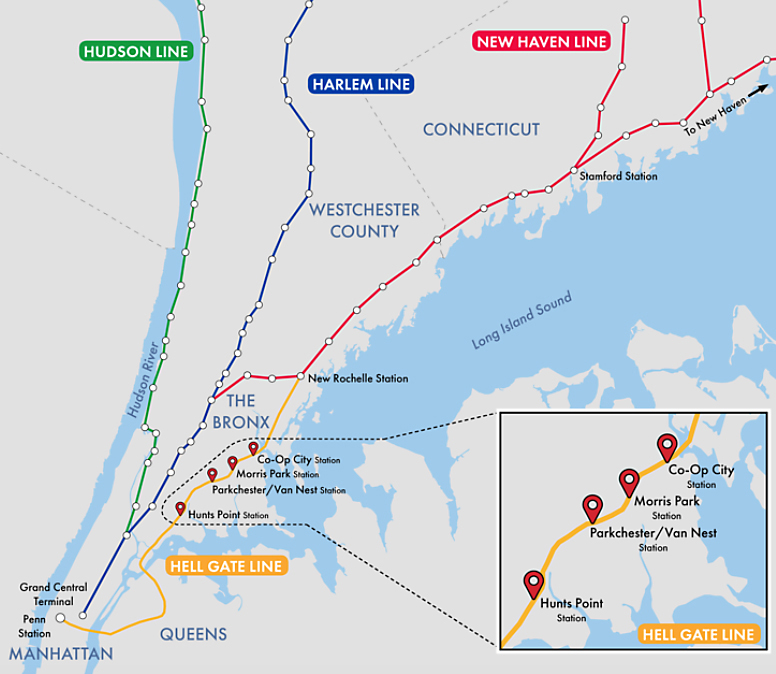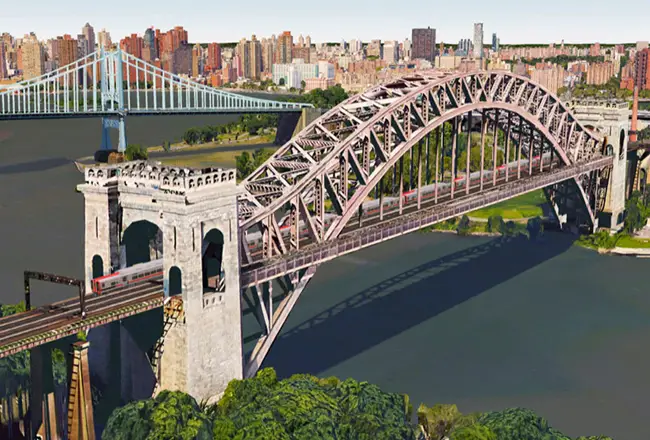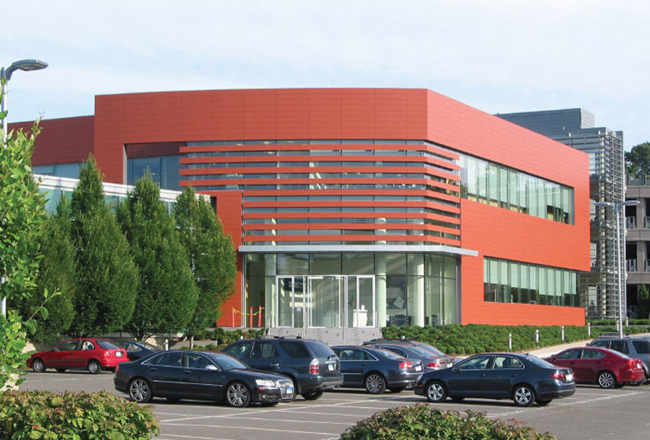
The Metropolitan Transportation Authority has named three groups of companies that it determined are qualified to bid for the job of building four new rail stations in the Bronx as well as bringing rail service into Penn Station by 2024.
Passengers along the New Haven line would be able to take trains that follow the existing route and stops through Connecticut and Westchester, to stop at the new East Bronx stations at Hunts Point, Parkchester/Van Nest, Morris Park and Co-Op City, and then follow the route now traveled by some Amtrak trains in the northeast corridor over the Hell Gate Bridge into Queens. From there, the Metro-North trains would merge with the Long Island Rail Road”™s route into the East River tunnels and underneath Manhattan into Penn Station.
Trains on the New Haven line are powered by high-voltage overhead wires. The route over the Hell Gate has been equipped with overhead power since the World War I era. Metro-North trains on its Harlem and Hudson lines take their electric power from third rails.
The MTA named three groups of contractors who will be invited to participate in a competitive solicitation process based on a request for proposals. They are:
Ӣ Halmar International LLC/Railworks JV (Ove Arup & Partners PC lead designer);
Ӣ Skanska ECCO III Penn Station Connectors JV (AECOM USA Inc., lead designer); and
Ӣ Tutor Perini/O&G JV (Parsons Transportation Group of New York Inc., lead designer).
Halmar is based in Nanuet. None of the other companies is based in the Hudson Valley.

The MTA said the entities were evaluated for their experience with projects of this scale, including factors such as past performance in completing projects on time and within budget, having qualified personnel and financial strength.
Westchester County Executive George Latimer reacted to the announcement by saying, “For almost two years, my colleagues in government and I have been fighting for the Penn Station Access Project. With this announcement, it is more clear than ever before that this fight was a successful one for the people of Westchester County and this region. The MTA’s progress here is a sign that we are tackling large scale challenges with large scale solutions instead of just paying them lip service.”
Metro-North President Catherine Rinaldi said, “We are thrilled, as are our customers and stakeholders, that this project is advancing. We will work closely with MTA Construction & Development to fully support this project and ensure it is completed as quickly as possible.”
Rinaldi said the project would represent the largest expansion of Metro-North since the railroad was created in 1983 when the MTA took over the operations of Conrail in New York and Connecticut. Metro-North has 124 stations along routes covering 384 miles.
The MTA is using a design-build process for this project whereby a single consortium will be responsible for both the design and construction. It was the technique used in the project to replace the Tappan Zee Bridge with the Mario M. Cuomo Bridge and on an expansion project for the Long Island Rail Road.
The MTA expressed the belief that the process forces bidders to identify faster ways to complete projects while mitigating construction impacts. It also suggests that it places the risk of cost overruns on the contractor rather than the MTA and rewards them if they are able to reduce impacts on commuters and local communities.
The MTA said that it expects up to 50,000 rides to be taken each day to or from Penn Station with up to 20,000 beginning or ending at the new stations in the East Bronx.




















